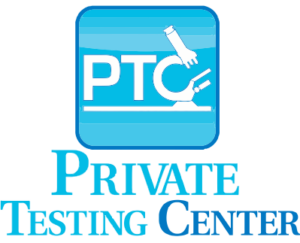A romantic relationship can be drastically affected if one person is diagnosed with HIV or AIDS. While there’s much more to most couples’ relationships than sex, it’s still an important part of being together. And by putting HIV prevention measures in place, it’s possible to stay well and maintain a sex life.
Finding safe methods of sexual intimacy is an important step for you and your partner after an HIV diagnosis, as is determining whether you want to try to have children.
Can Sex Be Safe With HIV?
It’s natural for couples to be afraid of having sex after an HIV diagnosis. But understanding the risks involved with certain kinds of sexual activity, and knowing about methods of HIV prevention, can help alleviate these fears.
When a person infected with HIV or AIDS has sexual intercourse of any kind, there is a risk of infecting the healthy partner — whether or not you use condoms. Couples need to be aware of which sexual activities put them at risk, and what they can do to minimize that risk.
“HIV can be transmitted through vaginal sex, anal sex, and it’s likely that it’s transmitted through oral sex as well. So all of these would carry a risk of transmitting HIV to the HIV infected person’s partner,” says Jennifer A. Shuford, MD, MPH, director of applied science at the Medical Institute for Sexual Health in Austin, Tex.
Couples can reduce (but not completely eliminate) the risk of transmitting HIV to the healthy individual through proper, consistent condom use.
“When you use condoms for vaginal intercourse, it reduces the risk of transmission of HIV by 85 to 90 percent,” says Dr. Shuford. However, “the risk is still there even when a condom is used correctly and consistently.”
What Are the Chances of Getting HIV?
For each act of intercourse, the odds are actually only around 1 in 1,000 that the healthy partner will contract HIV, according to Shuford. However, when you add that up over weeks, months, and years, a person in a relationship with an HIV-infected partner is at much higher risk. “The risk is additive over time and it’s important that people realize that condom use needs to occur every time,” Shuford adds.
The exact level of risk of the uninfected partner contracting HIV depends on several factors, including how well the infected partner’s HIV is being managed. Shuford notes that people who aren’t taking medication for their HIV will have higher concentrations of the virus in their bodily fluids, making it more probable that they could pass it on to a sexual partner.
People who are managing their HIV with medication will usually have less of the virus in their blood and bodily fluids, which decreases the risk that they will transmit it to a partner. However, being on HIV medication does not eliminate the risk of transmission, so condoms must still be used.
There are no documented cases of HIV having been contracted through saliva, so couples are generally given the OK to kiss as much as they want. However, there is a theoretical risk of transmitting the virus through deep kissing if the infected partner has open mouth sores or blood in his saliva (perhaps from severe gum disease) and the uninfected partner also has sores or cuts in or around the mouth.
Sexual partners can also engage in other acts of intimacy in which bodily fluids are not exchanged, or where bodily fluids don’t come into contact with the mucous membranes that line the mouth, anus, and vagina.
Having Children With an HIV-Infected Partner
There are also options for couples affected by HIV who want to have children. Some to consider are:
- In-vitro fertilization
- Artificial insemination
- Adoption
- Using a sperm donor
- Using a surrogate mother
- Limited unprotected intercourse (during ovulation only) — but this carries a risk of HIV transmission
For methods like in-vitro fertilization and artificial insemination, the sperm can be cleaned to remove as much of the virus as possible, but there is still a risk of transmitting the disease. Unfortunately, these methods are often quite expensive, and people who are already paying for HIV treatment may not be able to afford them.
While it’s highly unlikely that a healthcare professional would ever recommend having unprotected sex with an HIV-infected partner in order to have children, Shuford says that many couples do just that.
Couples who want to attempt to conceive naturally should talk to their doctor about the best time to have sexual intercourse, Shuford says. To minimize risk and increase the chance that they’ll become pregnant, it’s important for women who are trying to conceive to know when they’re fertile, have unprotected sex only during that fertile period, and limit the number of times they have unprotected sex.
If a woman who is infected with HIV gets pregnant, transmission of HIV from the mother to the baby is “another risk that has to be managed by the patient and physician,” says Shuford. The mother should manage her HIV with medication to reduce the amount of virus in her blood, and the baby can be treated immediately at delivery to reduce the risk of transmission.
Rather than avoiding intimacy, couples dealing with HIV should be aware of the risk of transmission, what activities involve risk, and what they can do to reduce it. Hugging, most kissing, and touching are all safe activities — and will be a great comfort to the person with HIV.
By: Diana Rodriguez
Medically Reviewed by: Lindsey Marcellin, MD, MPH

